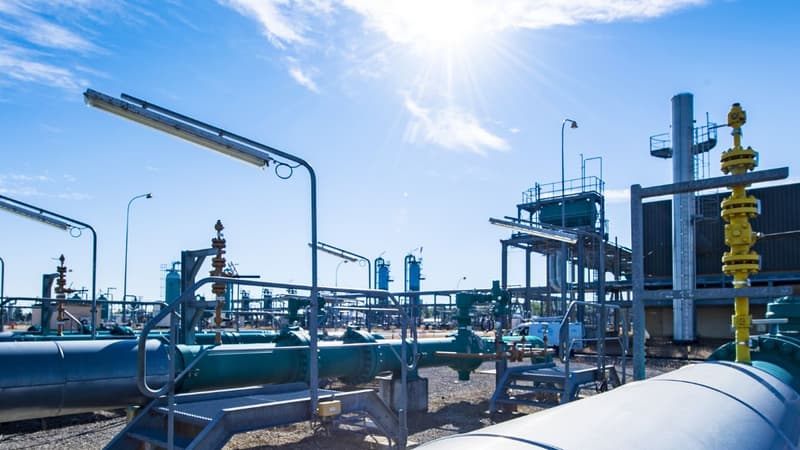Objective reached. Although the winter promises to be difficult in terms of energy, France has managed to fill its gas reserves almost 100%. This Wednesday, the Energy Regulatory Commission (CRE) announces that “the storage filling campaign for winter 2022/2023 ends with storage more than 99% full”.
“As of October 5, marketers have already accumulated close to 130 TWh of gas reserves, a level higher than the average of recent years. These gas volumes represent approximately 2/3 of the winter consumption of SMEs and individuals,” he adds. independent administrative authority. .
“We are ready to spend this winter”
To anticipate the risks of shortages linked to the drop in Russian gas deliveries, the Minister for the Energy Transition, Agnès Pannier-Runacher, indicated a few months ago that the Government’s objective was to fill the stocks to 100% “before 1 of November”. “, while operators are generally required to fill these reserves only 85% by this date.
On Tuesday, the European platform Aggregated Gas Storage inventory (AGSI) indicated that the two main managers of gas reserves in France, Storengy and Teréga, had filled their capacities to 96.37% and 100%, respectively.
“We are prepared to face this winter. We have anticipated this situation upstream. We have maximized our gas stocks, both nationally and in Europe. We have increased the import capacities of our LNG terminals. We have diversified our supplies, Prime Minister Elisabeth Borne said on Monday.
Savings that remain “crucial”
Filling stocks to 100% does not rule out the risk of difficulties this winter. In its report published this Monday, the International Energy Agency (IEA) indicates that saving gas continues to be “crucial” in Europe to spend the coming months in peace.
“Without a reduction in gas demand and if the Russian supply is completely cut off, the storages would be filled to less than 20% in February, assuming a high level of LNG supply” and “almost 5% in case of low LNG supply”. warns the IEA.
A meltdown of stocks at such levels “would increase the risk of supply disruption in the event of a late cold snap”, insists the OECD energy agency, which calls for savings to “maintain stocks at adequate levels until the end of the heating season. .
Source: BFM TV


